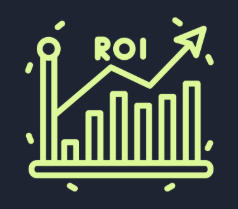Why Insurance Is Not a Good Investment: A Financial Perspective
Insurance is often positioned as a two-in-one solution: protection plus guaranteed returns. But when you dig deeper, most insurance-cum-investment products fall short on both fronts. If you’ve ever wondered whether insurance is a good way to grow wealth, the short answer is no. The real value of insurance lies in protection, not compounding.
AUM
Clients
Google Reviews
350+ Media Mentions
How an Investment Manager Can Help You
Separate Protection from Growth
An expert helps you clearly define what part of your money should go toward protection, and what should go toward growing your wealth
Evaluate True Costs and Returns
They help you assess the real return from your insurance policy after factoring in inflation, charges, and opportunity cost
Recommend Smarter Alternatives
They can guide you toward SIPs and goal-based plans that align with your life goals and provide better long-term outcomes

Nilesh Shah
President and MD

"The company's 'Dreams into Action' platform is another feather in their cap. It revolutionizes the investment process, making it accessible and interactive. Coupled with their top-notch team that provides hyper-customized financial solutions, they set an example for others in the industry."
Why Insurance Is Not a Good Investment

Traditional plans typically generate only 4–6% returns annually

Returns are not sufficient to beat inflation, which ranges between 5-7%

A large share of your premium goes into commissions and policy charges

These products have long lock-ins and offer poor surrender value early on

You can’t change or adjust them based on your evolving financial needs
Wrong Reasons to Treat Insurance Like an Investment
Many people continue with bundled insurance products simply because of sales pressure, sunk cost bias, or tax-saving habits. But that doesn’t make them good investments.
Continuing out of Guilt or Regret
Paying premiums only to “get something back” often means throwing good money after bad.
Believing in Tax-Saving Myths
Saving tax is a benefit, not a reason to commit to a poor financial product
Trusting the Word ‘Guaranteed’ Blindly
Guaranteed returns often hide extremely low growth after accounting for inflation
Mr. Ankur Arya's Dreams into Action
"My trust in FinEdge has grown and they have become partners for my goals and their achievement. My relationship with my portfolio manager has remained strong and I do share a level of trust with him. I particularly like the process followed by FinEdge for investing as I feel is well researched and adds value to me."
Why You’re Losing Out by Combining Insurance and Investment
Let’s say you invest ₹10,000/month for 20 years:
- In a traditional LIC plan (~6%), you may end up with ₹52.5 lakhs.
- In an equity mutual fund (~12%), your investment could grow to ₹98 lakhs. (*assumed not guaranteed rate of return)
That’s a ₹45 lakh difference, enough to fund a child’s education, boost your retirement, or fulfil multiple goals. The gap is caused by charges, low yields, and poor compounding, all of which make insurance a weak investment option.
Why Choose FinEdge
FinEdge’s goal-based investing platform, Dreams into Action (DiA) blends cutting-edge tech and human expertise to provide unbiased investment guidance.
- No Sales Targets
- No Product Pushing
- No Cross Selling/Upselling




